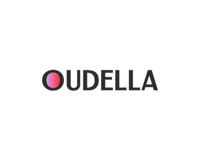Security products for healthcare facilities in Canada are similar to those used in other countries, but they must comply with Canadian regulations and standards. Here are some security products commonly used in healthcare facilities in Canada:
-
Access Control Systems:
- Electronic access control systems with card readers or biometric scanners to control access to restricted areas.
-
Surveillance Cameras:
- High-quality surveillance cameras and video management systems to monitor entrances, hallways, and other critical areas.
-
Intrusion Detection Systems:
- Intrusion alarms, motion sensors, and door/window contacts to detect unauthorized access.
-
Visitor Management Systems:
- Systems to manage and track visitors, including screening and badge printing.
-
Duress Alarms:
- Duress or panic alarm systems to allow staff to discreetly call for assistance in emergencies.
-
Asset Tracking Systems:
- RFID-based asset tracking solutions to monitor and secure medical equipment.
-
Electronic Health Record (EHR) Security:
- Solutions to protect electronic health records and ensure data security and privacy.
-
Fire and Smoke Detection Systems:
- Fire and smoke detectors for early detection and alerting in case of fire emergencies.
-
Biometric Authentication:
- Biometric systems for secure access to sensitive areas and records.
-
RFID Tracking for Patients:
- RFID-based patient tracking to prevent wandering and enhance patient safety.
-
Network Security Solutions:
- Cybersecurity measures to protect healthcare IT infrastructure and patient data.
-
Alarm Monitoring Services:
- Contracts with alarm monitoring services for 24/7 surveillance and incident response.
-
Safe and Medication Lockers:
- Secure storage for medications and controlled substances.
-
Locking Cabinets and Drawers:
- Lockable cabinets and drawers for securing medical supplies and documents.
-
Emergency Communication Systems:
- Intercoms and emergency communication systems to notify staff and patients in emergencies.
-
Security Training and Education:
- Staff training in security protocols and procedures to ensure awareness and compliance.
-
Disaster Preparedness Systems:
- Equipment and plans for disaster preparedness and response in compliance with Canadian regulations.
When implementing these security products in healthcare facilities in Canada, it's important to consider the regulations and guidelines set by organizations such as the Canadian Healthcare Engineering Society (CHES) and provincial health authorities. Security products should also align with privacy laws, such as the Personal Information Protection and Electronic Documents Act (PIPEDA) and provincial health information protection regulations. Regular security audits and updates are essential to maintaining a high level of security and compliance in Canadian healthcare settings.


